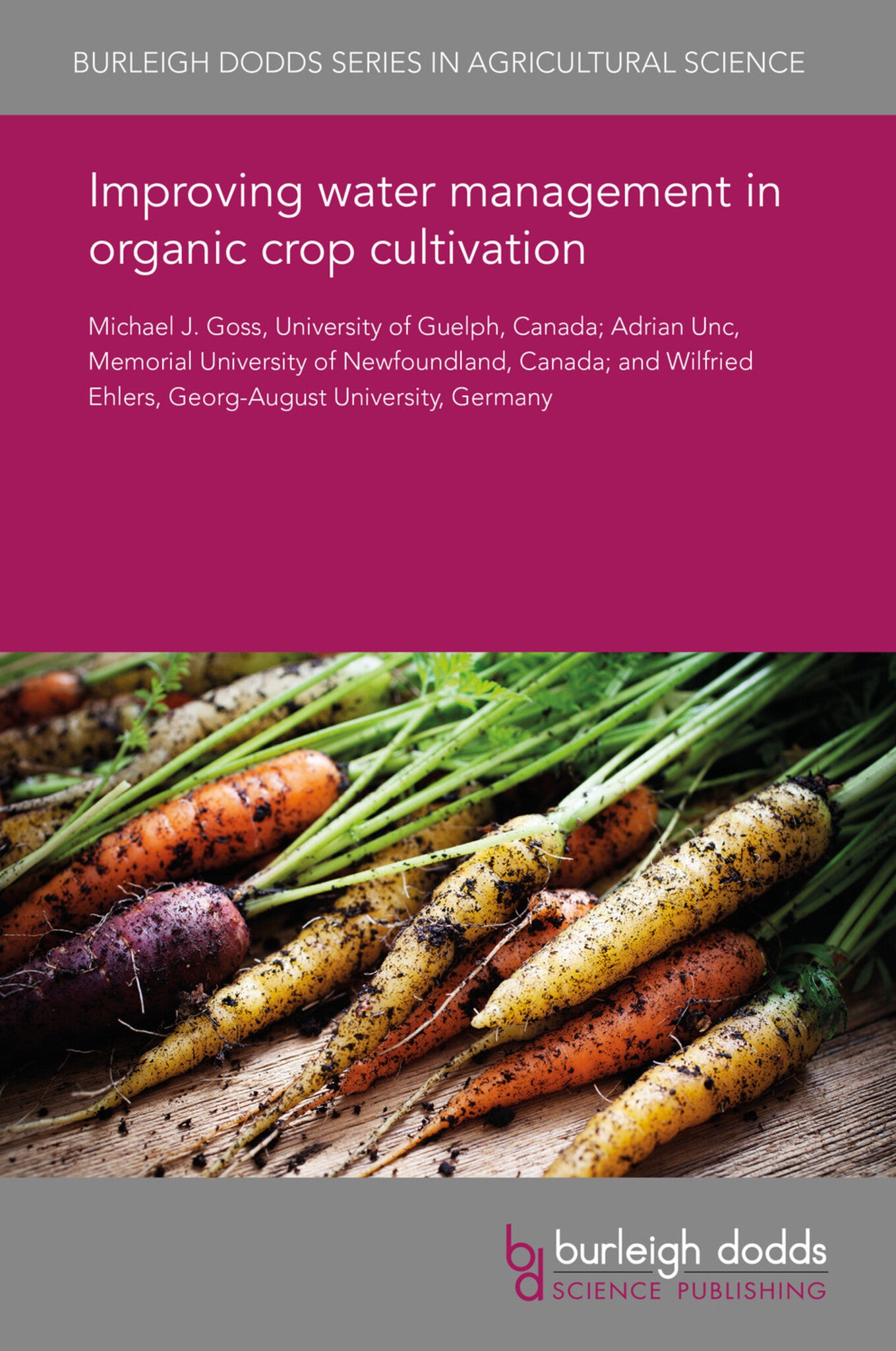We're sorry. An error has occurred
Please cancel or retry.
Improving water management in organic crop cultivation
Regular price
£25.00
Sale price
£25.00
Regular price
£25.00
Unit price
/
per
Sale
Sold out
Re-stocking soon
Managing water for crop production requires capture and storage of water in the soil, which must also be protected from damage by raindrop impact and excess water. These actions ensure that the soi...
Read More

Some error occured while loading the Quick View. Please close the Quick View and try reloading the page.
Couldn't load pickup availability
- Format:
-
22 October 2018

Managing water for crop production requires capture and storage of water in the soil, which must also be protected from damage by raindrop impact and excess water. These actions ensure that the soil will benefit from increased organic matter content and be protected by harvest residues, living plants or a mulch of dead shoot material. This chapter describes actions to deal with excess water and offset water shortage through irrigation, and addresses issues concerning the water cycle, statics and dynamics of water in soil, the field water balance, soil evaporation, crop transpiration, crop water use, and water use efficiency. The chapter considers new developments and requirements in relation to future demand for food production without any risk to the natural environment or human welfare, and explores the potential to develop improved practices that allow soil organisms to protect crops from water shortage.

Price: £25.00
Publisher: Burleigh Dodds Science Publishing
Imprint: Burleigh Dodds Science Publishing
Series: Burleigh Dodds Series in Agricultural Science
Publication Date:
22 October 2018
ISBN: 9781838796532
Format: eBook
BISACs:
TECHNOLOGY & ENGINEERING / Agriculture / Sustainable Agriculture, Organic farming, TECHNOLOGY & ENGINEERING / Agriculture / Agronomy / Crop Science, Sustainable agriculture, Agronomy and crop production

1 Introduction 2 Key aspects of organic farming affecting availability and use of water 3 Developments in water management in organic agriculture 4 Conclusion 5 Where to look for further information 6 References



